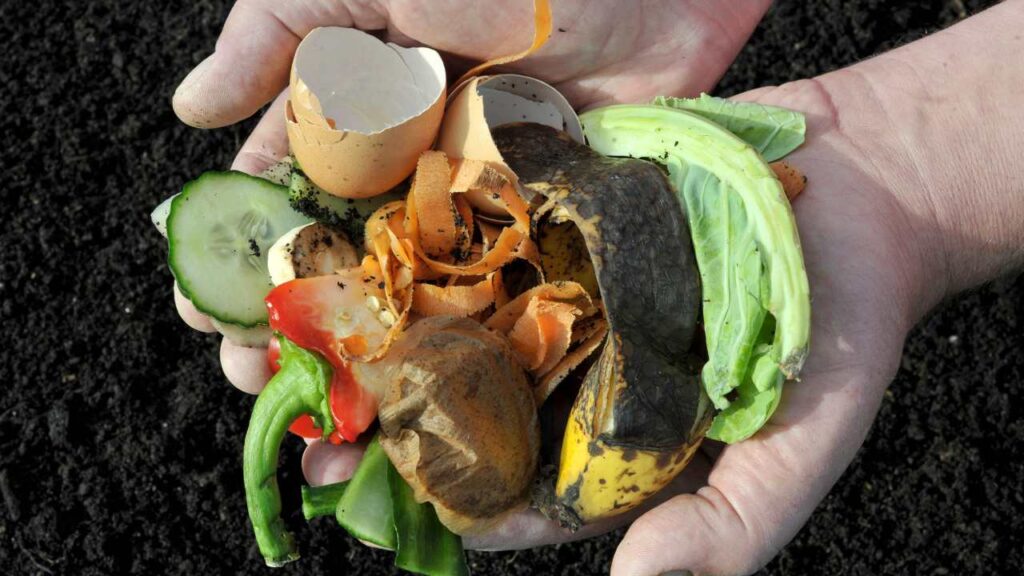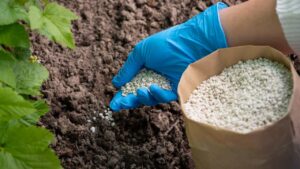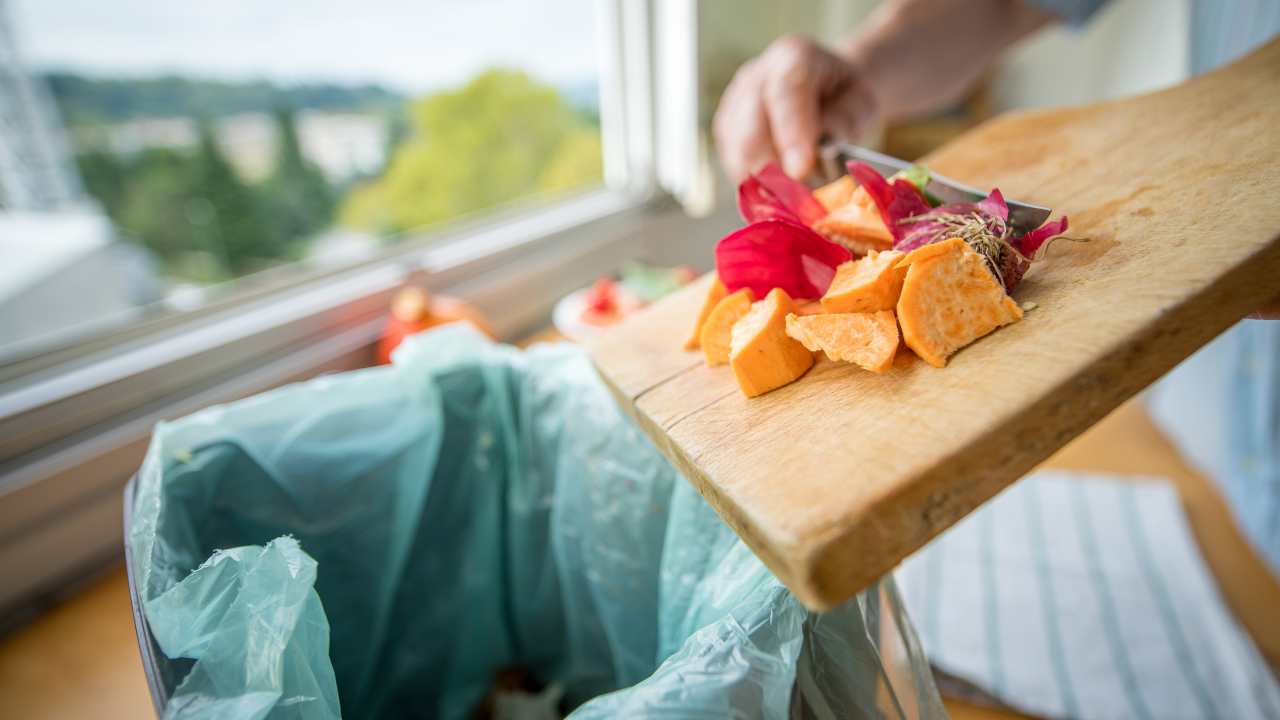How to Compost Kitchen Waste in Apartments?
To compost kitchen waste in apartments, use a small compost bin with a lid. Separate green and brown waste for optimal composting.
Composting turns organic waste into nutrient-rich soil for plants.
By composting kitchen waste in apartments, you can reduce waste and create your own sustainable soil amendment for gardening.
Composting is an eco-friendly way to manage kitchen waste even in apartment settings.
With a few simple steps, anyone can start composting at home, leading to a significant reduction in household waste.
Whether you have a balcony garden or indoor plants, composting can help enrich your soil naturally.
Let’s explore the benefits and steps to effectively compost kitchen waste in apartments.
Benefits Of Composting

Composting kitchen waste in apartments is an eco-friendly practice that offers several benefits.
It helps reduce landfill waste, enriches the soil with organic nutrients, and promotes sustainable gardening, all within the limited space of an apartment setting.
Reduces Kitchen Waste
Composting kitchen waste in your apartment comes with numerous benefits that are not only good for your household but also for the environment.
One prominent benefit is that it helps in reducing the amount of kitchen waste that ends up in landfills, where it contributes to harmful greenhouse gases.
Produces Nutrient-rich Soil
When you compost your kitchen waste, it transforms into nutrient-rich soil that can be used for gardening or potted plants.
This soil is filled with essential nutrients and helps in the growth of healthy and thriving plants.
Saves Money On Fertilizers
By composting your kitchen waste, you can significantly reduce the need for store-bought fertilizers.

The compost acts as a natural and cost-effective alternative, enriching the soil with the necessary nutrients and saving you money in the long run.
Setting Up A Composting System
Looking to compost kitchen waste in apartments?
Setting up a composting system is simple.
Utilize a small bin with a lid, add brown and green materials, and turn the contents regularly to create nutrient-rich compost for your indoor plants.
Choose A Composting Method
Decide between indoor worm composting or outdoor bin composting.
Find A Suitable Container
Pick a container that fits your space and is ventilated.
Create A Composting Schedule
Allocate time for adding kitchen waste and turning the compost regularly.
Preparing Kitchen Waste For Composting
In apartments, composting kitchen waste is a sustainable practice that can be easily done with proper preparation.

Here are essential steps to prepare your kitchen waste for composting:
Separate Organic Waste From Non-organic Waste
- Use separate bins for organic and non-organic waste.
- Check labels to discern between the two types of waste.
Chop Or Shred Larger Food Scraps
- Cut food scraps into smaller pieces for faster decomposition.
- Shred or chop up fruit and vegetable peels and scraps.
Avoid Adding Meat, Dairy, And Oily Foods
- Exclude meat, dairy, and oily foods from the compost pile.
- Skip adding these items to prevent odor and pests in your compost.
By separating your waste properly, chopping large scraps, and avoiding certain items, you can efficiently prepare kitchen waste for composting in your apartment.
Maintaining The Composting Process
If you’re composting kitchen waste in your apartment, maintaining the composting process is essential to ensure successful decomposition and avoid any unpleasant odors.
Here’s how to keep the compost pile in optimal condition:
Balance Carbon And Nitrogen Ratios
Ensure that the carbon and nitrogen ratios are balanced in your compost pile.
Use equal parts of green waste (nitrogen-rich) such as vegetable scraps and brown waste (carbon-rich) such as shredded newspaper or dried leaves.
Regularly Aerate The Compost
Aerating the compost helps the organic matter to break down efficiently.
Turn your compost pile every few days using a pitchfork or compost turner to introduce oxygen and prevent anaerobic conditions.
Monitor Moisture Levels
Regularly check the moisture level of the compost pile. It should be damp like a wet sponge.
Adjust the moisture by adding water or dry materials as needed to maintain the optimal moisture level for decomposition.
Using And Harvesting The Compost
Composting kitchen waste in apartments is a convenient and eco-friendly way to reduce waste and create nutrient-rich soil.
Once you have successfully started your compost pile and it has gone through the decomposition process, it is time to use and harvest the compost.

Here are some simple steps to follow:
Allow compost to mature
Before using your compost, it is important to allow it to mature.
This process typically takes about 2 to 6 months, depending on the ingredients used and the environmental conditions.
During this time, the organic matter breaks down further, resulting in a dark, crumbly compost that is ready to use.
To determine if your compost is mature, look for these signs:
- The compost has a pleasant, earthy smell
- It has a dark brown or black color
- The original organic materials are unrecognizable
- There are no visible signs of decomposition
It is important to note that immature compost may contain pathogens or weed seeds that can harm your plants.
So, be patient and resist the temptation to use it before it is ready.
Apply compost to indoor plants
Once your compost has matured, it can be utilized to boost the growth of your indoor plants.
Indoor plants can greatly benefit from the nutrients and moisture-retaining properties of compost. To apply the compost:
- Ensure the compost is well-rotted and free of large twigs or debris.
- Use a trowel to scoop a small amount of compost.
- Spread the compost evenly on the top layer of potting soil surrounding the plant.
- Gently work the compost into the soil using your fingers or a small gardening tool.
- Water the plant thoroughly to allow the compost to nourish the roots.
Your indoor plants will thank you for the nutrient boost, and you will notice healthier growth and vibrant foliage.
Transfer excess compost to an outdoor garden
If you find yourself with an excess of compost, whether from a bountiful kitchen or a small indoor space, you can transfer it to an outdoor garden.
This allows you to put the compost to good use and improve the overall soil quality.
Follow these steps to transfer the excess compost:
- Choose a sunny spot in your outdoor garden that receives at least six hours of sunlight per day.
- Clear any weeds or debris from the chosen area.
- Spread a layer of compost about 1-2 inches thick over the soil surface.
- Using a garden fork or spade, gently mix the compost into the top few inches of soil.
- Water the area thoroughly to ensure the compost is evenly distributed and integrated into the soil.
The addition of compost will enrich the soil with organic matter, improving its fertility and drainage.
Your outdoor plants will thrive with this added boost.
Frequently Asked Questions On How To Compost Kitchen Waste In Apartments
How Can I Compost Kitchen Waste In My Apartment?
Composting kitchen waste in your apartment is easy and can be done using a small compost bin or vermicomposting.
What Can I Compost From My Kitchen Waste?
You can compost fruit and vegetable scraps, coffee grounds, tea bags, eggshells, and shredded paper.
Can I Compost Meat And Dairy In My Apartment?
It’s better to avoid composting meat and dairy in your apartment as they can attract pests, causing odor issues.
How Often Should I Turn The Compost In My Apartment?
Turning the compost in your apartment once every week or two helps with aeration and accelerates the decomposition process.
Should I Add Water To The Compost In My Apartment?
Yes, it is important to keep your compost moist, but not soggy. Adding water occasionally helps in the composting process.
How Long Does It Take For Kitchen Waste To Turn Into Compost In Apartments?
The time required for kitchen waste to turn into compost in apartments can range from 2 to 6 months, depending on various factors.
Can I Compost In An Apartment Without A Balcony Or Outdoor Space?
Yes, you can compost in an apartment without a balcony or outdoor space by using a small indoor compost bin or vermicomposting.
What Should I Do If My Indoor Compost Bin Smells Bad?
To eliminate bad odor from your indoor compost bin, ensure proper aeration, add carbon-rich materials, and avoid adding meat or dairy.
Can I Use Compost From My Apartment For Indoor Plants?
Yes, compost from your apartment can be used for indoor plants as it enriches the soil with nutrients and promotes healthy growth.
Are There Any Benefits Of Composting Kitchen Waste In Apartments?
Composting kitchen waste in apartments reduces landfill waste, saves money on buying fertilizers, and promotes sustainable living.
Conclusion
By composting kitchen waste in apartments, you can reduce your environmental impact and create nutrient-rich soil for your garden.
Embracing this sustainable practice can help to minimize food waste and contribute to a more eco-friendly lifestyle.
With a few simple steps, you can easily turn your kitchen scraps into valuable compost for a greener future.


